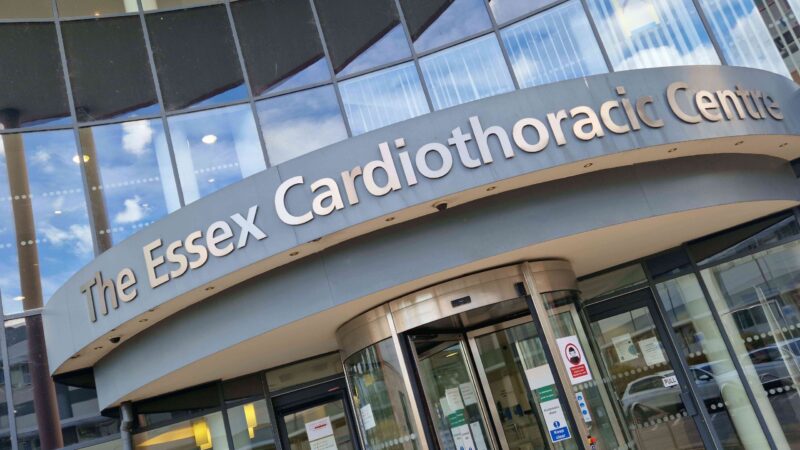
Lives of patients suffering Out of Hospital Cardiac Arrests could be saved thanks to a new pilot scheme being trialed across Essex jointly by ambulances, air ambulances and a specialist heart centre.
An Out of Hospital Cardiac Arrest (OHCA) – a condition when the heart stops and urgent resuscitation is needed to save a life – only has an 8% survival rate nationally, but hoping to improve patient outcomes are the world-renowned Essex Cardiothoracic Centre (CTC) – part of Mid and South Essex NHS Foundation Trust.
They are working together with the East of England Ambulance Trust (EEAST) and Essex and Herts Air Ambulance (EHAAT) and several months into the pilot, they are already seeing signs that it is making a positive difference and saving patients.
First and foremost this trial is about improving outcomes in our patients. In its first three months we have already seen that by standardising our approach the early results are encouraging and we are already helping make a positive impact on the lives of patients.
Trying to tackle the widespread differences seen nationally in the treatment of this group of patients is vital in driving up survival rates.’’
Consultant Cardiologist at the Essex CTC and Associate Professor at Anglia Ruskin University, Dr Thomas Keeble
One of those patients to benefit is Leonora Freeman, 56, from Braintree, who had a cardiac arrest in bed on November 1 last year. Luckily, her husband was there, but things could have been very different as Leonora nearly slept in the spare room.
I still get emotional thinking about how it could have been, but I’ve no real memory of what happened to me. My husband, Roger, gave me CPR for 15 minutes before the ambulance arrived and the care from them and everyone at the Essex CTC was so quick and so amazing. I cannot thank them enough, all of them saved my life and I shall be forever grateful.”
Until something like this happens you don’t realise that life can be taken away so quickly, so I’m now living my life to the fullest.
After having such a terrible year last year with my cardiac arrest, this year is going to be amazing and a time for making memories as I’ll be heading to South Africa to see my son and his wife, who are expecting a baby in October.
The ambulance service and Essex CTC were unbelievable, and because of them and this pilot scheme I can now see this new life come into the world, without them I wouldn’t be here now and I would have missed being able to meet my grandchild. My care has been life-saving and life-changing, not just for me but for my whole family.”
Leonora Freeman, 56, from Braintree
They gave her a fighting chance as it was just an hour and a half between Leonora being put in an ambulance, having a stent fitted at the Essex CTC and being awake and talking to her family. And just five days later she was home, and then returned to work in January.
The pilot came about when the British Cardiovascular Intervention Society (BCIS) released an expert opinion document offering guidance for pre-hospital paramedics and air ambulance teams on triage and which patients stand to gain the most from direct access to a heart attack centre.
This means that patients who have a cardiac arrest that can be treated with a shock from a defibrillator will be taken directly to the Essex CTC for ongoing assessment and treatment. This algorithm is being piloted across Essex, aiming to improve patient outcomes, standardise care and limit costly secondary transfers between the network of hospitals within Essex.
This new algorithm could help get patients in the right place first time, cutting down on secondary transfers between hospitals in Essex, and freeing up our paramedics to attend more of our sickest patients.”
Deputy Chief Executive of EEAST, Kate Vaughton
The introduction of the new pathway has allowed our critical care team to directly transfer patients to a point of definitive care. Due to the formalised pathway, the decision making is simplified and reduces the time it takes for a patient to reach specialist care whilst supporting enhanced patient outcomes.”
Adam Broom, Clinical Director for EHAAT
Outcomes from the pilot are being recorded via the BCIS OHCA research registry and the findings could save lives not just across Essex, but right across the country.